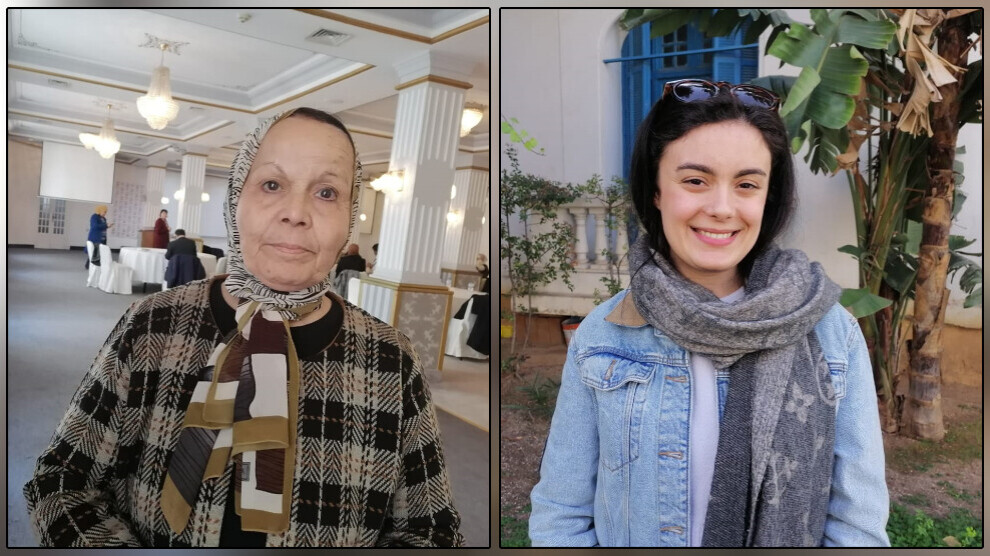Women launch initiatives in Tunisia to reduce effects of climate change
Environmental activists in Tunisia launch individual and collective initiatives to reduce the effects of climate change on vulnerable groups, especially women.

NAZIHA BOUSSIDI
Tunisia- Environmental activists in Tunisia launch individual and collective initiatives to reduce the possible effects of natural disasters such as drought, water shortage and floods caused by climate changes on vulnerable groups.
The Around Water Dynamic (Water Dynamic) is one of these initiatives created by environmental activists, including researchers, experts, students and other professionals. “Climate change affects vulnerable groups, especially women, women with disabilities and children,” said Manana Zitouni, an environmental activist of the Water Dynamic. “Women living in rural areas are responsible for providing water for their families, which increases their heavy burdens.”
‘Women have to walk for three hours to fetch water’
“Women living in rural areas of the city of Kairouan have to walk for three hours to fetch water. On their way, they are subjected to many risks. According to the Tunisian Forum for Economic and Social Rights, women are subjected to rape and attacks while trying to fetch water.”
‘It affects women in agriculture’
Speaking about the effects of climate change on agriculture, Manana Zitouni said, “Most of the people working in agriculture are women. Women farmers need training courses against negative effects of climate change such as drought. Women farmers should be economically empowered so that they can cope with this phenomenon.” Manana Zitouni called on Tunisian authorities to take an immediate step to minimize the negative effects of climate change. “The Tunisia's water code, which was created about 50 years ago, must be amended.”
‘Women have been losing their livelihoods’
“Women make up 70 per cent of the agricultural sector in Tunisia. Drought and wildfires reduce the amount of agricultural lands,” said Hasiba Balghaith, coordinator of the “Fe.Na.Klima: Gender & Climate Finance in Tunisia” project. “For this reason, women farmers have been losing their livelihoods. Last year, Tabarka, (a town located in north-western Tunisia) suffered from wildfires, displacing women farmers. They went to the capital; however, they have been facing difficulties in finding shelters, looking for schools for their children. Some women stayed in their town; however, their husbands had to go to other cities to find a job for themselves, leaving their families.”
Hasiba Balghaith mentioned the agricultural cooperatives providing financial support to women farmers. “The agricultural cooperatives are safe spaces for women. However, women farmers have many problems in marketing and distributing their products due to high costs.”
A group of non-governmental organizations work on the ground to write a report on the effects of climate change on women in Tunisia. “We will submit this report to the Ministry of the Environment, the Ministry for Women and the Family and the Assembly of the Representatives of the People,” said Hasiba Balghaith.”
‘We have launched several initiatives to minimize the effects of climate change'
The Association Calam (Coexistence with Alternative Language and Actions Movement) in Tunisia advocates human rights, especially the rights of vulnerable groups such as immigrants and women. “Climate change has serious impacts on women. We have launched several initiatives to minimize the effects of climate change on women, especially rural women of Tabarka, who suffered from wildfires last year.
The wildfires caused the destruction of women’s livelihoods,” said Doha Yahyawi, member of the association.
The association worked in coordination with women of Jendouba, a city in northwestern Tunisia, to determine the extent of the destruction. “We launched a campaign to support the people so that they could overcome this crisis,” said Doha Yahyawi. “As part of the campaign, we have carried out awareness-raising activities about climate change by working with a group of experts. Our association works in cooperation with other associations to be the voice of vulnerable groups and develop a strategy to prevent wildfires.”
